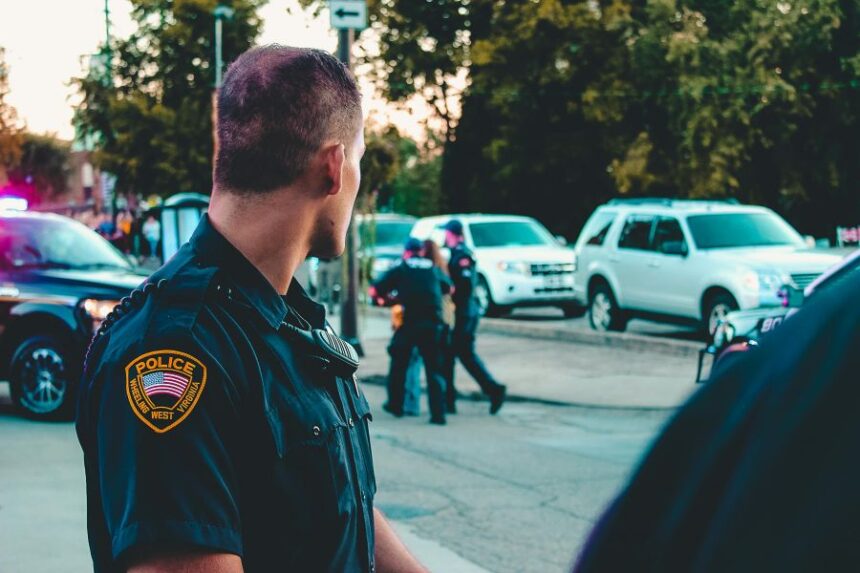If you’ve ever been stopped by law enforcement, you may have wondered, Does a police officer have to give you his name and badge number in Colorado? Understanding your rights during a police encounter can help you stay informed, calm, and in control. In many cases, identifying the officer involved is essential for transparency, accountability, and legal follow-up.
Colorado law supports the principle of police transparency, but the requirements for officer identification vary depending on the situation. No universal rule mandates that officers verbally provide their names or badge numbers in every interaction. Still, several policies and practices allow citizens to obtain that information.
This article explores when and how officers must identify themselves, how to request that information legally and respectfully, and what to do if an officer refuses to provide it. If you’ve ever asked If a police officer has to give you his name and badge number in Colorado, this guide will give you the answers you need, backed by state law, civil rights, and best practices.
Does a police officer have to give you his name and badge number in Colorado?
In most cases, Colorado officers must provide their name and badge number when asked, especially during a stop, detention, or enforcement action.
Colorado’s Officer Identification Policies Explained
In Colorado, police officer identification is guided primarily by department-level policies and broader public accountability standards. While state law does not require officers to verbally share their name and badge number in every situation, most local departments impose such expectations internally. Cities like Denver, Boulder, and Colorado Springs require officers to wear visible name tags and carry identification while on duty. These typically display the officer’s name, rank, and badge number, ensuring basic transparency in public interactions.
Department manuals often go further. For instance, Denver Police Department policy requires officers to provide their name and badge number upon request—unless doing so would interfere with officer safety or an ongoing investigation. This identification becomes especially important when a civilian wishes to file a complaint or document an incident while recording.
Generally, officers comply with identification requests when asked respectfully. Still, not all departments enforce these policies in the same way. That’s why understanding your rights and the appropriate way to request officer identification is essential. Knowing what’s expected by policy, even if not codified in statewide law, you can better protect yourself and navigate police encounters with clarity and confidence.
When are officers required to give their name and badge number in Colorado?
Understanding when a police officer must provide their name and badge number in Colorado is key to asserting your rights. The requirement depends on the nature of the interaction and department-specific policies.
During a Traffic Stop
Officers perform an official enforcement action when you are pulled over in a traffic stop. In these situations, they are generally expected to identify themselves by name and badge number, directly or through visible display on their uniform. If an officer fails to offer this information voluntarily, you have the right to ask respectfully.
If You’re Being Detained or Arrested
When an officer detains or arrests you, you cannot leave; they legally exercise authority. While Colorado law does not explicitly require verbal identification, most department policies expect officers to disclose their name and badge number during these interactions, especially if the detained individual requests.
When Filing a Complaint
If you intend to file a complaint against an officer, departments usually require that you provide identifying details such as the officer’s name or badge number. You are fully entitled to ask for this information during or shortly after the interaction, and officers are generally expected to comply unless safety concerns override the request.
In Non-Enforcement Interactions
Casual or non-enforcement encounters like friendly community outreach may not legally require officers to identify themselves. Still, many officers will share their names voluntarily to maintain trust and transparency.
Exceptions in Undercover Work
Officers working undercover or involved in covert investigations are often exempt from immediate identification requirements. Disclosing their identity in such contexts could jeopardize their safety or compromise an active case.
Essential Things to Know About Officer Identification in Colorado
If you’re wondering whether an officer must give you their name and badge number, it’s essential to understand both your rights and the policies that govern these interactions in Colorado. Here are key points to keep in mind:
- You Have the Right to Ask: In most encounters, especially those involving detainment or questioning, you can legally and respectfully request an officer’s name and badge number.
- Department Policy May Vary: While Colorado state law does not always mandate verbal ID disclosure, local police departments, such as Denver and Colorado Springs, often have internal policies that require it.
- Refusal Isn’t Always Illegal: It may not be illegal for an officer to delay or decline to provide their ID due to immediate safety concerns or sensitive circumstances. However, repeated or unjustified refusal can be reported and should be documented.
- Uniforms Usually Display ID: Most on-duty officers wear visible name tags and badges on their uniforms, making it possible to identify them without asking directly.
- You Can Request a Supervisor: If you’re uncomfortable or denied an officer ID, you can calmly request that a supervisor be called for assistance or clarification.
- Record or Document the Interaction: When legal, recording or noting the time, location, and physical description of the officer can help if you plan to report misconduct or file a complaint later.
How to Request Officer Identification Without Escalation
When interacting with law enforcement in Colorado, how you ask for an officer’s name and badge number can make a big difference. If the situation is tense, remain calm, speak clearly, and wait until the officer is not giving commands or dealing with immediate safety concerns. A respectful request like, “Officer, may I please have your name and badge number?” is usually appropriate and well-received. If the officer avoids the question, you can politely repeat the request or ask to speak with a supervisor.
Avoid sudden movements, raised voices, or aggressive body language, as these may be perceived as threats and escalate the encounter unnecessarily. Officers are trained to prioritize safety, so your demeanor plays a role in how they respond. If identification is not provided, note the officer’s appearance, time, location, and department. These details will be helpful if you must follow up or file a formal complaint.
Does a Police Officer Have to Give You His Name and Badge Number in Colorado? Addressing the Misconceptions
Many myths surround your right to know an officer’s identity during an encounter. Let’s clarify some common misconceptions to help you better understand Colorado’s approach to officer identification.
1. Police must always give their name no matter what: While officers are often expected to identify themselves, especially during official enforcement, there is no universal legal requirement. Disclosure depends largely on department policies and the context of the situation.
2. If officers won’t identify themselves, they’re hiding something: Not necessarily. Officers may delay providing their name or badge number due to safety concerns or active investigations. Refusal doesn’t imply misconduct but can still be noted and reported.
3. You can’t take legal action without a badge number: You can still file a complaint even without knowing the officer’s name or badge number. Recording the date, time, location, and agency can help identify the officer later.
4. Recording an officer asking for ID is illegal: This is false. In Colorado, you can legally record police officers in public spaces if you do not interfere with their duties or obstruct justice.
5. Badge numbers are confidential: Incorrect. Badge numbers are public information and a key component of accountability. Officers display them as part of standard transparency procedures.
Conclusion
Does a police officer in Colorado have to give you his name and badge number? Typically, yes—especially during stops, detentions, or any official interaction that could lead to legal or administrative follow-up. While state law doesn’t always require verbal disclosure, department protocols across Colorado often mandate it. Knowing when and how to request this information protects your rights and reinforces public accountability. Calm, respectful communication goes a long way in these moments. If an officer refuses without a valid reason, request a supervisor and take note of key details. Understanding your right to officer identification empowers you to act confidently, support transparency, and ensure responsible policing in your community.
FAQ’s
Are Colorado police required to provide their badge number when asked?
Yes, officers are expected to give their name and badge number when requested in most enforcement-related situations, especially during stops or citations.
What if an officer refuses to identify himself?
You can ask again, request a supervisor, and document key details like time, location, and agency. Refusal may violate department policy.
Can undercover officers deny giving their name?
Yes, officers working in undercover or sensitive operations are often exempt from identification requirements for safety and mission protection.
Is recording an officer asking for their name and badge number legal?
Absolutely. In Colorado, you can legally record police in public areas if you don’t interfere with their duties or obstruct justice.How can I file a complaint if I don’t know the officer’s name?
Provide detailed information, such as the date, time, agency, location, and physical description, to help the department identify the officer involved.











